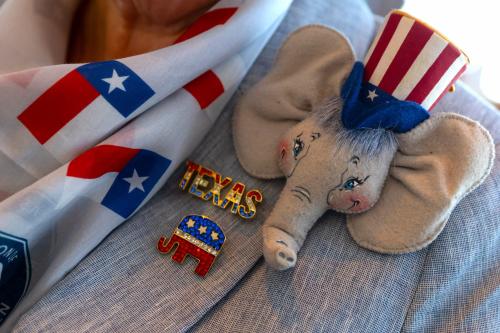In the former Soviet republic of Georgia, billionaire Bidzina “Boris” Ivanishvili had a net worth equal to one-third of his country’s $15.8 billion gross domestic product, but was dissatisfied with the ruling party. Then President Mikheil Saakashvili had been elected in 2008 on an anticorruption platform, and to the dismay of Ivanishvili and his Russian allies, the chief executive was pursuing pro-Western policies and threatening to join NATO.
To combat this move, Ivanishvili formed a new political organization, the Georgian Dream party, to fight Saakashvili and his policies. Members of Ivanishvili’s party won a majority of seats in the parliament and the billionaire was named prime minister.
Ivanishvili is not an isolated case. Instead of sitting on the sidelines and seeking to influence public policy from afar, billionaires have sought public office in thirteen countries over the past decade. In addition to Ivanishvili and Michael Bloomberg and Donald Trump in the United States, billionaires such as Silvio Berlusconi, in Italy; Serge Dassault, in France; Frank Stronach, in Austria; Clive Palmer, in Australia; Zac Goldsmith, in the United Kingdom; Petro Poroshenko, in Ukraine; Andre Babis in the Czech Republic, Thaksin Shinawatra, in Thailand; Manuel Villar, in the Philippines; Najib Mikati and the late Rafiq Hariri, in Lebanon; Vijay Mallya and Nandan Nilekani, in India; and Mikhail Prokhorov, Andrei Guriev, and Sergei Pugachyou, in Russia have run for office.
To the surprise of political pundits, most of these individuals have won. The only losers so far have been the Russian candidate Prokhorov, who lost to what some people have joked was the richer politician (Vladimir Putin) and Indian billionaire Nandan Nilekani, whose Congress party got swamped when Prime Minister Narendra Modi swept to power.
There are reasons why many billionaires have been successful in seeking elective office. In an age of rampant citizen cynicism, voters see them as white knights who are too rich to be bought. From a voter standpoint, these individuals have the economic independence to stand up to special interest groups. American billionaire Trump regularly plays to this perception by saying he is self-funding his campaign and not relying on corporate funding.
In addition, billionaires often assemble unconventional coalitions and display a willingness to think outside the box. Through control of media and money, they dazzle the public with tough talk and bold ideas, and claim their business success guarantees political effectiveness. Trump follows this approach by appealing to white, working class voters who feel they have been left behind. In some of the primary states, exit polls have shown the tycoon attracting votes from independents and even disaffected Democrats.
Trump has been successful precisely because he is different from the typical politician. To the consternation of his competitors, he has pledged to build a $10 billion wall along the border with Mexico and said American should keep Muslims out of the country. He furthermore has disavowed traditional GOP orthodoxy on cutting entitlement programs and maintaining tax loopholes for wealthy people, and argued leaders should do more to help the average person.
Part of Trump’s appeal is to working class voters who have been left behind in recent decades. They have seen no wage growth in 30 years and worry about America’s changing demographics. They don’t believe that free trade has benefited them or that immigration has improved the economy.
In making unconventional policy arguments and appealing across party lines, Trump is following the political playbook of billionaires who have sought elective office. Similar to Berlusconi of Italy and Babis of the Czech Republic, he has played to average people who have not done well economically and he has put new issues on the table that appeals to those individuals.
Opponents bemoan his lack of predictability and unconventionality, but those are the qualities that have worked well for a number of ultra-wealthy candidates. Political observers should not write off candidate Trump because of his unusual coalitions or strategies. In following that kind of approach, he opens up the electoral map and puts new states and new voting blocs into play. Pundits should not under-estimate the vote-getting abilities of the New York City developer.


Commentary
Billionaires win when they run for office around the world
March 22, 2016